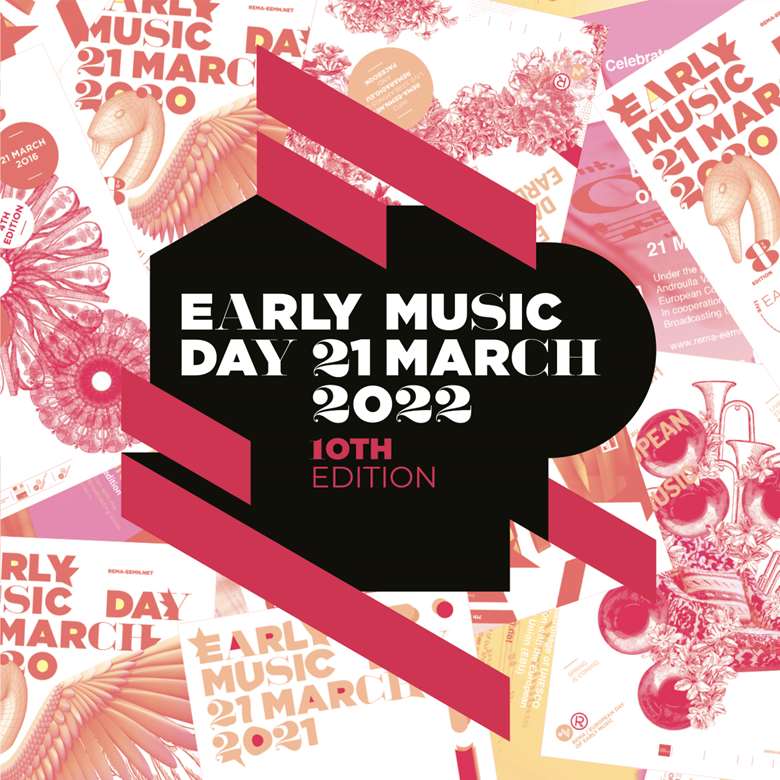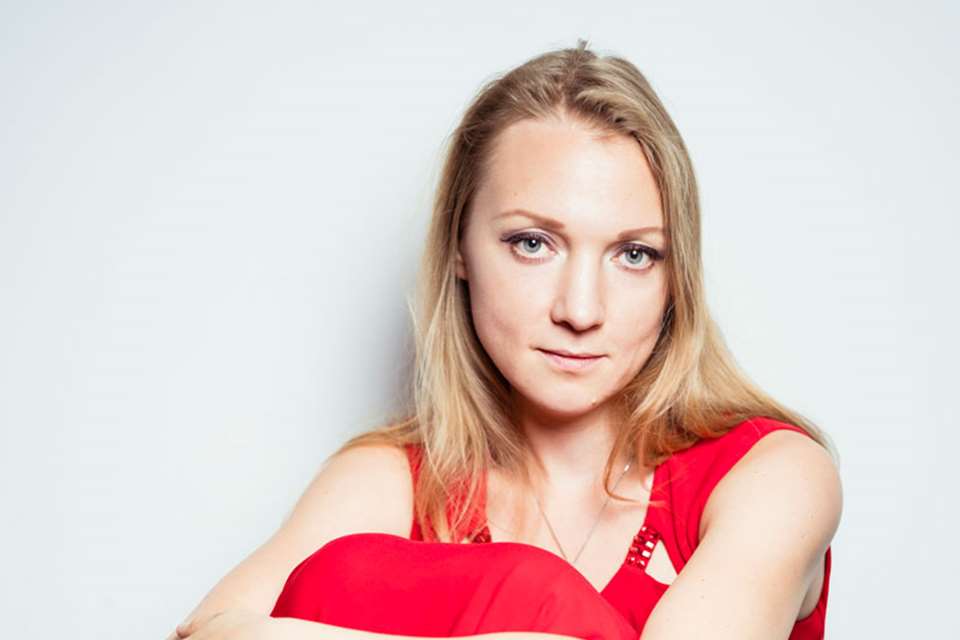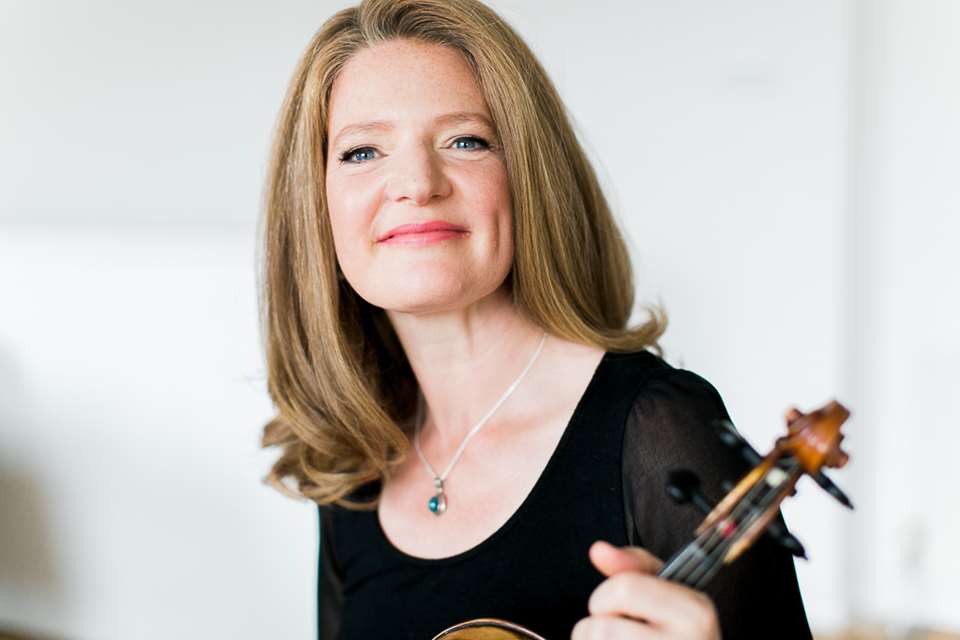10 Years of Early Music Day: A Decade Celebrating a Millennium
SponsoredThursday, March 17, 2022
The 10th Early Music Day will celebrate music from Gregorian chant to baroque ballet, and much more

For some early music aficionados, March 21 has always been a special date. On that day in 1685 – the first day of spring in Europe – Johann Ambrosius Bach and his wife Maria Elisabeth Lämmerhirt gave birth to their eighth and youngest child, Johann Sebastian.
More recent history was made on that same date a decade ago. On March 21, 2012, the continent united for Europe’s first Early Music Day. From Ireland to Estonia, music from 10 centuries resounded in a celebration of Europe’s extraordinary sonic heritage and collective history.
Music is the one language all of Europe understands. The treasury of European music spans more than 1000 years, from oral traditions to notated scores, from Gregorian chant to baroque dance. It tells us more about our history that we can ever imagine, tracing everything from architectural styles to social traditions – from religion to revolution.
While much of this music is well known, so much of it lies undiscovered by audiences, record buyers, music streamers and web surfers. Once again, this year’s EMD will fill buildings, airwaves and the internet with performances, happenings and events of all kinds. Medieval, Renaissance, Baroque, early Classical and even folk, there will be so much music to discover.
‘Why and how does Early Music still speak to us today, from hundreds of years away?’ asks the renowned Italian countertenor and 2022 EMD Ambassador, Carlo Vistoli. ‘I always felt that one of its most fascinating peculiarities is to allow the interpreter to express themselves in many ways, and to give, even within the boundaries of the practicing “rules”, the possibility to personalize the performance,’ he continues. ‘The more we discover, the more we realize there are buried treasures that are just waiting to reveal themselves.’
In the third decade of his new century, Europe’s Early Music life has never been richer, broader or more vibrant. This year’s EMD celebrates the vitality of the Early Music community with its biggest ever programme of live events, on-site performances, broadcasts, master-classes, workshops and conferences. To sign off a day on which Europe will resound with music, Carlo Vistoli will perform a programme of Italian baroque arias live and free via the EMD website.
As always, the EMD will embrace the world’s most renowned early music ensembles as well as groups you may never have heard of – or even those closer to home. To register your own performance or event as part of the programme, and download your media kit, visit the earlymusicday.eu – where you can also access our interactive map of events happening near you.
The 2022 edition of the EMD will incorporate the second EMD Festival whose events run a full week from March 21. We will mark the best of early music courtesy of 10 outstanding videos and create a special celebration of the online Early Music community (don’t forget to follow the social media hashtag #earlymusicday). The EMD Festival will also present a specially curated programme of ten concerts that offer a comprehensive overview of the European early music scene, in partnership with FEVIS and our friends across the Atlantic at Early Music America.
After Europe’s longest musical fermata for centuries, it’s time to fill the air with music again. So whether you’re joining us in person at a performance, listening via a European radio station or logging on for an online event, you can enjoy a celebration of early music like none other. In the words of Carlo Vistoli, prepare to experience ‘an entire world that opens minds and hearts to new and unexplored emotions.’
Carlo Vistoli’s EMD Playlist
Bach: Cantatas – English Baroque Soloists, Monteverdi Choir / John Eliot Gardiner (Soli Deo Gloria)
John Eliot Gardiner is universally renowned as one of the greatest experts on Bach’s music, and his relationship with the great German composers dates back some decades already. In 2000, he realised an ambitious project of performing and recording all of his surviving church cantatas. The cantatas were presented on the liturgical feasts for which they were composed, in a year-long musical pilgrimage. The English Baroque Soloists, The Monteverdi Choir, great soloists and, of course, Gardiner: a unique combination for a unique project.
Handel: Alcina – Les Arts Florissants / William Christie (Erato)
The 1999 Paris Opera production of Alcina brought together one of the greatest baroque specialists, William Christie, and one of the most important opera directors of our times, Robert Carsen – two great artists with both of whom I had the honour to work. Their collaboration, not only in this case but for many other productions, is one of the greatest, for me, in recent opera history. For this occasion, Christie had an all-star cast, with, among others, Renée Fleming (not a baroque specialist, but with her bel canto qualities she makes an unforgettable Alcina), Susan Graham and Natalie Dessay – all at their best.
Handel: Rinaldo – The Academy of Ancient Music / Christopher Hogwood (Decca)
This was 'my' first Rinaldo as a listener and I was deeply impressed by David Daniels – one of the most beautiful countertenor voices. His Almirena is no less than the always marvellous Cecilia Bartoli, and, among a lot of beautiful singers, we find here even Bejun Mehta, another of my favourite countertenors. Christopher Hogwood conducts with his usual elegance. A must-have in Handel discography.
Handel: Il Trionfo del Tempo e del Disinganno – Le Concert d’Astrée / Emmanuelle Haïm (Erato)
My favourite Italian oratorio by Handel: a succession of beautiful arias, duets and quartets of extraordinary beauty. Handel re-used a lot of material throughout his entire career and if one listens to this work, the reasons are clear. Emmanuelle Haïm and her ensemble are sparklingly imaginative and full of colours, and the soloists are simply four top singers (among them, a person very dear to me, Sonia Prina – one of my teachers – a full-bodied, beautiful alto voice).
Handel: Arias – Marilyn Horne, Solisti Veneti / Claudio Scimone (Apex)
Not a period-instrument orchestra, and the style has undoubtedly developed since then, but the importance of Marilyn Horne in the history of baroque singing is undeniable for me, and this recital proves it. As Joan Sutherland did for the soprano register, Horne revolutionised the way of approaching the castrato repertoire, revealing the vocal fireworks of virtuoso arias, with fully ornamented da capos and elaborated cadenzas. A classic.
Gesualdo: O dolorosa gioia (madrigals) – Concerto Italiano / Rinaldo Alessandrini (Naïve)
Carlo Gesualdo is known not only for his enigmatic music, but also for his personal life – having committed a so-called honour killing, murdering his wife and her lover. But, focusing on his musical works, what impresses us still today is the power of audacious chromatic choices – a language not heard again until the late 19th century. Speaking of his madrigals, he wrote also the texts, with almost expressionist tones, and this selection made by Concerto Italiano is a perfect way to know these incredible pieces. Rinaldo Alessandrini, an absolute expert of this repertoire, balances a philological approach with musical inventiveness and underlines the relationship between music and words.
Monteverdi: L’incoronazione di Poppea – English Baroque Soloists / John Eliot Gardiner (Arkiv)
This recording has a sentimental value to me, because it was my very first experience of Monteverdi’s music when I was a teenager, and it was love at first... listen! Years later, I sang the role of Ottone with the same John Eliot Gardiner: who would have thought, at the time? Such an honour for me. This recording, even after almost 30 years, remains an important one. Only a few instruments: no flutes or cornetti, like in Venetian theatres for real. I still find Anne Sophie von Otter’s Ottavia unforgettable.
Mozart: Mitridate, Re di Ponto – Les Talents Lyriques / Christophe Rousset (Decca)
A 'Late-Baroque Mozart', we could say. He was 14 when he wrote his first opera seria for Milano but his genius was already evident. Wide-ranging lento arias, virtuoso singing, coloraturas, arie di furore, beautiful accompagnati: an immersive mix of what the genre had to offer at the time. This recording is already a classic: a fantastic cast, led by another great French baroque harpsichordist and conductor – Christophe Rousset.
Purcell: Music for a While – Alfred Deller, Wieland Kuijken, William Christie, Roderick Skeaping
Alfred Deller was a pioneer countertenor and his contribution in discovering the pre-classic repertoire is priceless. I deeply love Purcell’s music (his Dido and Aeneas was also the first opera I sang on stage). This anthology reveals Deller’s refined musicality, and the subtle nuances of a voice that maybe wasn’t 'operatic' like modern countertenors but still capable of marvellous colours. At the harpsichord, we even find a young William Christie.
Rameau: Platée – Les Arts Florissants / William Christie (Harmonia Mundi)
I cherish the French Baroque, although I sang very little (the castrati weren’t used in France, and they preferred haute-contres). The few occasions I had to sing this repertoire were with one of its greatest experts, William Christie. This recent recording of Platée (recorded live at Theater an der Wien, with a beautiful and touching staging by Robert Carsen) is one of the most beautiful for me: utterly funny, full of energy and joy but with bitter and touching moments too. Orchestra and choir at the top, and wonderful singers that are also great actors.













